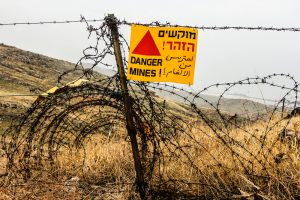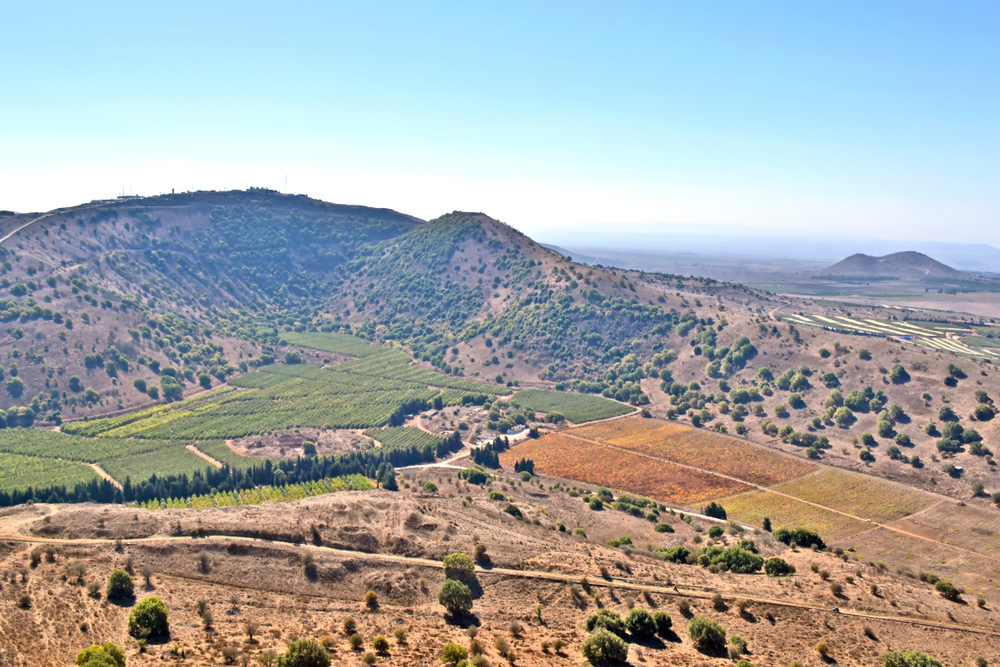The Golan Heights
The Golan Heights lie on the border of Syria Israel, Lebanon, and Jordan. This hilly area is originally the tribal area of Manasseh. Israel declared the area Israeli territory in 1981. However, the United Nations does not recognize this.
The conflict around the Golan Heights

Remnants of the Six Day War can still be seen today in the Golan Heights. These old mine fields formed the Israeli-Syrian border before Israeli forces took the Golan Heights in the 1967 War.
In 1900, various Jewish groups inhabited the Golan Heights. In 1923, however, the area separated from the British Mandate of Palestine. The French captured the highlands and the Jews left their settlements. The area now belonged to the French Mandate of Syria. Syria became independent in 1946. They used the territory as a military base for attacks on Israel.
In 1967, Israel captured large parts of the Golan Heights during the Six-Day War. Syria tried to recapture it during the Yom Kippur War of 1973. On 31 May 1974, Israel and Syria concluded an agreement. Israeli forces withdrew from part of the Golan. Since then, Israel has included the highlands as part of the Jewish State, much to the dismay of Syria. Syria wants to regain possession of the highlands and is supported by the UN.
A strategic advantage
The Golan Heights are very important to both Israel and Syria. Both countries get a large part of their water supply from this area. Furthermore, the soil is very fertile and very suitable for orchards, vineyards, and livestock farming. In addition to these natural advantages, the region is also strategically advantageous. From the mountains, one can see the Syrian capital of Damascus and the Israeli city of Haifa. Whoever owns the territory can monitor the other country.
In 2019, Trump officially declared that the United States recognizes the area as part of Israel. The American president received much criticism about this.




